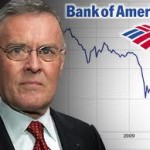
Every once in a while – ok, every couple of weeks – we get hit in the head with a new example of how “executive compensation” and “executive performance” have close to zero correlation in practice. The key to this disconnect is typically “incentive pay” through company stock or stock options.
This week’s story about Yahoo’s fired COO Henrique de Castro’s compensation is a nice one.
Henrique de Castro joined Melissa Mayer’s team in October 2012, before being fired by Mayer 15 months later, as she explained in this memo. Meanwhile, Castro departed with a $58 million severance package due to a surge in Yahoo’s stock price, which itself is the happy coincidence of a surge in valuation over those 15 months for Alibaba, a Chinese e-commerce company, partly owned by Yahoo.
Yahoo reportedly missed revenue and profit targets during de Castro’s tenure, and he received none of his projected annual bonus $540,000 bonus for 2013. We know how his board and colleagues thought he performed last year – which is to say poorly – because the rest of the top Yahoo management team received more than 80% of their bonus targets, making him a clear outlier at the company.
When you’re executive severance pay gets tied to your company’s stock price, however, and furthermore your company luckily owns a big stake in a hot Chinese internet company despite poor operating performance over that time, who cares about actual performance?
When he joined Yahoo, De Castro originally negotiated, or was offered, a potential $36 million equity compensation package. Yahoo stock surged more than 2.5 times between his hiring and firing, for which de Castro probably deserves little credit.
Bottom line: Poor personal performance, poor company performance, generous hiring package, lucky Chinese internet company stake, $58 million severance.
I don’t know. I don’t want to begrudge a guy his lucky fortune, but it seems like the shareholders of Yahoo should not be pleased. The larger point is that this type of disconnect between performance and compensations happens all the time, and shareholders should be displeased. And the culprit in this story is generous equity-based awards, every time.

I’m not really advocating government regulation of executive compensation as, theoretically, this kind of horrific pay-for-performance is self-correcting: Management teams and boards that cut these types of compensation deals should be brutally punished by the market (via a company’s stock price for example) and in the court of public opinion.
On the other hand, we know from enough experience at this point that this self-correcting mechanism does not really work. Compensation consultants who set the standard for recruitment and compensation packages too often have an incentive to keep the numbers high. They get hired by boards populated by executives who all benefit from this generous equity overpayment scheme. Until we have real shareholder-revolt power (and we don’t yet) my theory of a self-correcting market mechanism is more theory than practice.
It’s complicated.
Other negative-correlation horror-shows of executive compensation and executive pay
De Castro isn’t the worst example of all time for the negative correlation between executive performance and compensation.
That title originally went to Merrill Lynch’s Stanley O’Neal, who wrote down $8 billion in shareholder value from owning toxic CDOs shortly before leaving Merrill with a $161 million equity-based severance payment in 2007.
The reigning champion would be Kenneth Lewis, who took a perfectly healthy Bank of America in 2007 and purchased the giant black hole of value known as Countrywide Mortgage for $4 Billion, a transaction which ultimately cost shareholders an estimated $40 Billion in liabilities, possibly the worst financial deal of all time.
For his next trick, Lewis purchased Merrill Lynch (along with its heaping pile of CDO toxic waste accumulated under O’Neal’s watch) for $50 Billion in 2008, only to quickly write down $20 Billion from Merrill’s balance sheet in the next quarter, requiring a special $20 Billion US Treasury infusion to keep the purchase from entirely sinking Bank of America, previously the country’s healthiest large bank.
After his years of compensation in the $20 million range, Lewis’ departing gift was a $53 million pension from Bank of America. In March 2014, he was banned from management of public company for 3 years and ordered to pay a $10 million fine, as a result of a lawsuit brought by the New York Attorney General.

I’m rendered breathless writing all of that. Heck of a job, Kenny.
Post read (6526) times.
